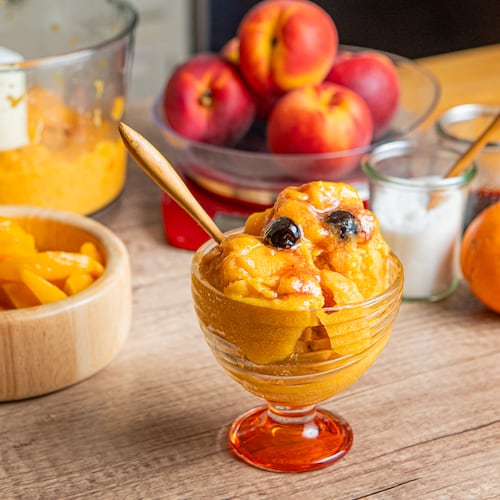KIEV, Ukraine — Out in the fields of eastern Ukraine, they fought the Russians. Now, as men in a kitchen, they are no less fearsome.
“It’s hard, it’s hot, but I’m with my brothers,” said Leonid Ostaltsev, the bearded, tattooed founder of Pizza Veterano, a freshly opened pizzeria here that hires only veterans of the war in eastern Ukraine as cooks.
In the kitchen, the brothers in arms and spatulas spin balls of dough, dice bell peppers and slide sizzling pizzas out of a hot oven. The pizzas are made in the Ukrainian style, heaped with bacon and onions.
In the month since it opened, Pizza Veterano, a restaurant where all the tablecloths are camouflage print, has become an improbable hit, in part by focusing on an underserved segment of the population.
Kiev, the picturesque Ukrainian capital of churches and cobblestoned lanes built on a bluff over the Dnieper River, is coping with a flood of returning war veterans, about 12,000 of the estimated 50,000 soldiers demobilized as the 18-month war in the east wound down in September. Hundreds of those veterans are looking for jobs and places to hang out.
With the help of a veterans union, many have started small businesses, opening auto repair shops or refurbishing apartments. Most of them, though, are struggling, offered only a pittance from the state for their service. A promise by the Kiev mayor’s office to give every veteran about an acre of land, for example, has predictably unraveled in bureaucracy.
“People who have military experience, the experience of killing and, in addition, received a lot of trauma are moving back into society,” Ostaltsev said. “They are pained, frustrated, dissatisfied. What are they going to do?”
Bake pizza, it turns out, for Ostaltsev and a half-dozen fellow veterans.
Like other vets, Ostaltsev demobilized after a year at the front, twitchy and ready to shroud his war memories in a haze of drink. He tattooed a cross on his forearm for each lost comrade.
He volunteered with a veterans association, trying to find meaning in helping his comrades.
But soon enough, he realized that what he and his colleagues really needed were jobs. With seed money from a Ukrainian-American investor, Pizza Veterano fired up its oven in one of the city’s malls.
The pizza place has yet to turn a profit, in part because a sign prominently declares that any veteran who steps in the door gets a free pizza. “The government left me broke,” one veteran, Alexander Petrov, said at the restaurant recently. “I love this pizza.”
But it seems to be thriving, packed with patrons most of the day. But to Ostaltsev and his employees, money is not the important thing. They want to offer a place full of hope in a city and country without many of them lately.
Instead of two cooks, as originally planned, Ostaltsev hired five, turning out about 150 pizzas a day. The most popular comes with four types of meat — bacon, ham, chicken and salami — along with heaps of mushrooms and onions. On the menu, it is called The Dandelion, after the nom de guerre of Ostaltsev, a name said to send shivers down the spines of the enemy in the east because of his reputation as a fierce fighter.
Another selection much loved by veterans is the Ukrainian, similarly layered in chunks of the local bacon, called salo.
In this rough topography of fat atop the pizza, the grease pools in the low ground.
“We are Ukrainians,” Ostaltsev, a machine-gunner in the army, said of the bacon overkill on most toppings. “The more the better.”
At Pizza Veterano a real hand grenade (defused) sits beside the cash register. It has become the centerpiece of a collection of good luck charms Ukrainian soldiers typically carry in their pockets: shell casings painted like Easter eggs and tiny, embroidered rag dolls, called motanki.
Every Sunday, Pizza Veterano holds free classes in cooking pizza for the children of veterans. It also encourages patrons, the paying variety, to donate pizzas to military hospitals. During the first month, customers ordered $3,500 worth of pizzas for military hospitals, a princely sum in Ukraine these days.
Pizza Veterano is not the first to try pounding swords into pizza pans.
Italian soldiers serving as U.N. peacekeepers in southern Lebanon have offered civilians there pizza-baking classes in the Italian army’s mobile, truck-borne pizza ovens, in the belief that pizzerias create jobs nearly as quickly as they bake pizzas.
“It’s very important to spend time together,” Lt. Jacopo Evangelisti said in a video posted online by the U.N. Interim Force in Lebanon, about the army’s pizza program. “Confidence building is an important task.”
Thrown into the war with minimal training, Ukrainian soldiers faced a far superior force once the Russian army intervened.
After going through all this, Rafail Agayev, a former machine-gunner and the head cook, said he now encouraged other veterans to dive into small business. “The war was scary,” he said. “But now, don’t be afraid, losing some money is the worst that can happen.”
Peculiarly for Ukraine, nary a health or fire inspector has asked for a bribe. But then, Agayev conceded, “you would have to be very brave to ask us for a bribe.”
About the Author
The Latest
Featured


